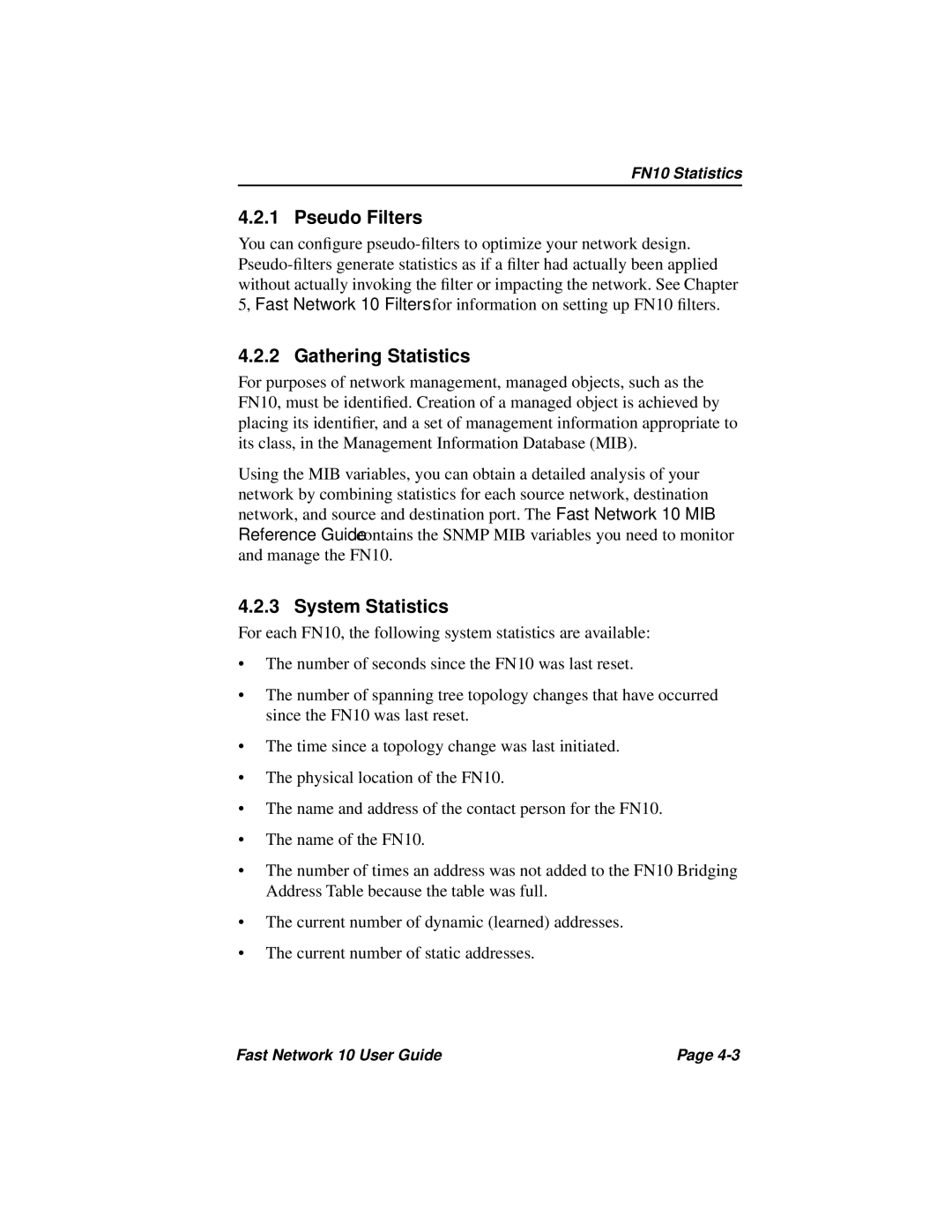FN10 Statistics
4.2.1 Pseudo Filters
You can configure
4.2.2 Gathering Statistics
For purposes of network management, managed objects, such as the FN10, must be identified. Creation of a managed object is achieved by placing its identifier, and a set of management information appropriate to its class, in the Management Information Database (MIB).
Using the MIB variables, you can obtain a detailed analysis of your network by combining statistics for each source network, destination network, and source and destination port. The Fast Network 10 MIB Reference Guide contains the SNMP MIB variables you need to monitor and manage the FN10.
4.2.3 System Statistics
For each FN10, the following system statistics are available:
•The number of seconds since the FN10 was last reset.
•The number of spanning tree topology changes that have occurred since the FN10 was last reset.
•The time since a topology change was last initiated.
•The physical location of the FN10.
•The name and address of the contact person for the FN10.
•The name of the FN10.
•The number of times an address was not added to the FN10 Bridging Address Table because the table was full.
•The current number of dynamic (learned) addresses.
•The current number of static addresses.
Fast Network 10 User Guide | Page |
